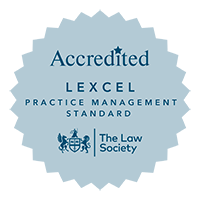Domestic Abuse and the Lockdown
At present we are being advised by the Government “that the single most important action we can all take, in fighting Coronavirus, is to stay at home in order to protect the NHS and save lives.” But as the Coronavirus (Covid-19) pandemic develops, charities are also reporting a sharp increase in the number of domestic abuse cases that they have received. For those living with an abusive partner, staying at home may not be that safe at all.
Domestic abuse is not always physical violence. It can also include:
• coercive control and ‘gas lighting’
• economic abuse
• online abuse
• verbal abuse
• emotional abuse
• sexual abuse
What help is available for people in an abusive relationship during this time?
As at any other time, it is important that if you are in immediate danger, you should call 999 and the police will be able to assist. The police can take protective actions to help you and take criminal action to prosecute the abuser.
The Government have also published some helpful guidance in respect of domestic abuse during this time and stated that the household isolation instruction as a result of corona virus does not apply if you need to leave your home to escape domestic abuse. The Government website (link below) sets out a number of helplines; refuges and charities that can assist
https://www.gov.uk/guidance/domestic-abuse-how-to-get-help.
How can we help?
We remain open for business during the lock down and Gibson Young’s specialist Family team can help advise you in all aspects of family law, including civil remedies that may be available to protect you. We can advise you in applications for non-molestation orders and occupation orders as well as alternative dispute-resolution where appropriate.
A non-molestation order provides protection from any form of physical, sexual or physical molestation or harassment that has a serious impact on the alleger’s health and well being or the health and well being of any children.
A non-molestation order can also be used to prevent one party from entering the house or even certain rooms in the house. Breach of a non-molestation order is a criminal offence and where a power of arrest is attached, the police can arrest someone for disobeying an order.
An occupation order sets out who can live in the family home (or certain parts of it) and can also restrict someone entering the area surrounding the home. An occupation order will not affect the other party’s financial interest in the home, it will simply regulate who can live in it.
If you have a query related to any of the above, or in respect of any family law or divorce advice, please contact a solicitor who can discuss possible ways forward with you.
We remain open for business during this Coronavirus (COVID-19) Pandemic. Our specialists are able to offer a virtual consultations during this time for any family law or divorce advice . To arrange your consultation, please call us or email us
and we will arrange an appointment at a time to suit you. External links
https://www.gov.uk/coronavirus
(Updated 6th May 2020)
The contents of this article are intended for general information purposes only and shall not be deemed to be, or constitute legal advice. We cannot accept responsibility for any loss as a result of acts or omissions taken in respect of this article.




